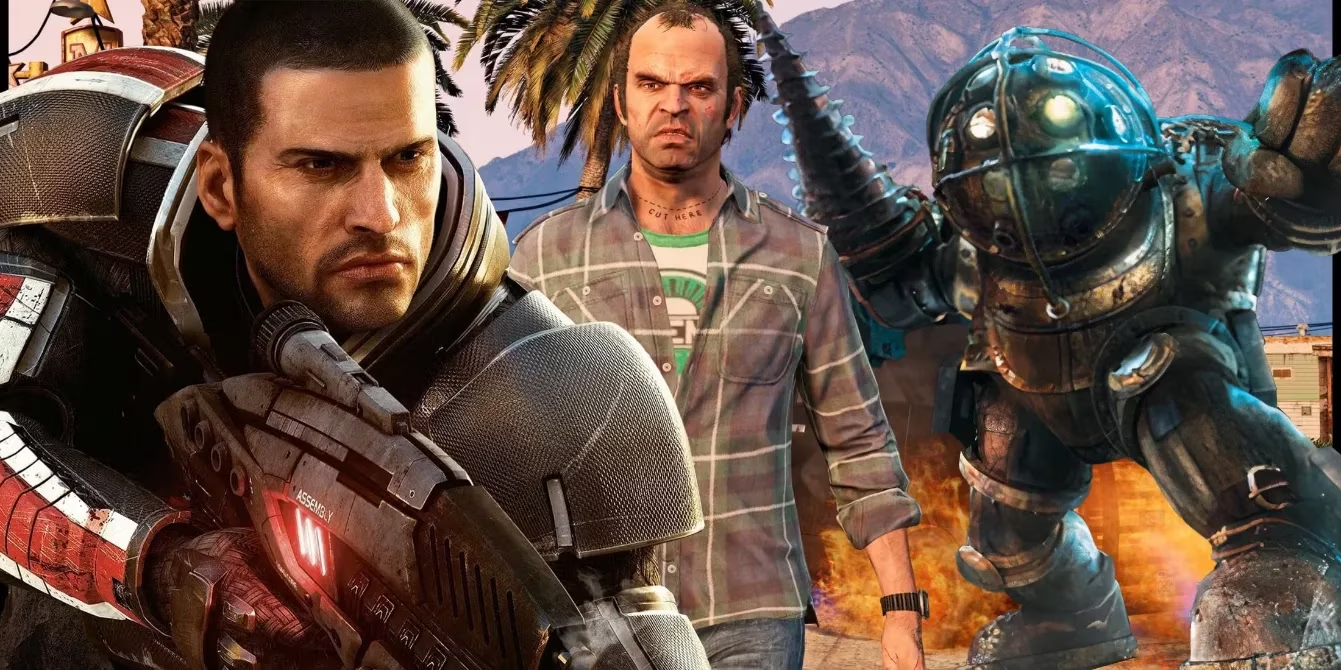Looking back from 2025, I still feel the seismic shift that rocked gaming between 2005 and 2013. The PlayStation 3, Xbox 360, and Nintendo Wii didn't just upgrade graphics—they fundamentally transformed how we experience virtual worlds. As a player who lived through that era, I'm struck by how these consoles turned gaming into something visceral and emotionally charged. Developers took wild creative risks that paid off spectacularly, crafting worlds that breathed with unprecedented life and stories that punched harder than any before. While some trends fade, these pioneers remain etched in our collective memory because they dared to redefine possibility.

Grand Theft Auto IV's Gritty Poetry
I remember booting up GTA IV expecting chaotic fun. Instead, I got Niko Bellic’s tragic odyssey—a raw meditation on escaping one's past. Liberty City became my antagonist; its rain-slicked streets and jostling crowds created suffocating realism. That Euphoria physics engine? Pure magic. Cars lurched like drunken metal beasts, gunfights felt brutally tactile, and watching enemies tumble down stairs never lost its horrifying fascination. Rockstar proved open worlds could be more than playgrounds—they could be character studies.
BioShock's Shattering Legacy
Few moments shook me like descending into Rapture. Andrew Ryan’s voice still echoes: "A man chooses..." That 2007 masterpiece weaponized philosophy, blending shotgun blasts with chilling critiques of objectivism. The Plasmids weren’t just powers—they were strategic puzzles. I’d electrify water, ignite oil slicks, then freeze enemies mid-charge. And those lumbering Big Daddies? Still nightmare fuel. But BioShock’s genius was weaponizing player agency itself. When Ryan exposed my puppet strings, I dropped the controller, stunned.
Arkham City's Perfect Dance
Rocksteady didn’t just make a superhero game—they crafted ballet with batarangs. Gliding over Gotham’s prison metropolis felt like pure freedom. Their free-flow combat? A rhythmic symphony where counters flowed into takedowns like poetry. I’d perch gargoyles, scattering terrified thugs with fear takedowns before diving into brawls where every punch crunched. The Rogues Gallery interplay—Joker’s mania against Two-Face’s duality—proved superhero narratives could rival Greek epics.
Uncharted 2's Cinematic Fireworks
Remember the "games vs. movies" debates? Naughty Dog ended them. That dangling train sequence in Tibet wasn’t just set dressing—it hurled me into blockbuster chaos. Drake’s quippy charm and Lazarevic’s snarling villainy created character depth I’d only seen in films. Yet the genius was pacing:
-
😄 Breathtaking platforming
-
🔍 Clever artifact puzzles
-
💥 White-knuckle shootouts
It balanced spectacle with intimacy, making Elena and Chloe’s banter feel like reuniting with old friends.
Metal Gear Solid 4's Over-the-Top Swan Song
Kojima delivered maximalism perfected. OctoCamo let me vanish into carpets like a phantom. Boss fights became psychological warfare—especially battling Laughing Octopus as she mimicked crying civilians. But that microwave corridor haunts me. Straining to push Snake forward while his skin sizzled... it transformed button-mashing into physical agony. MGS4 wrapped 20 years of convoluted lore into something profoundly human: an old soldier’s last stand against his demons.
Skyrim's Bottomless Wonder
Eleven years later, I still discover new caves. Bethesda crafted not just a world, but a feeling—that spine-tingling wonder when dragon shadows darken frozen tundras. Its brilliance was unstructured freedom:
| Path | Experience |
|---|---|
| Thieves Guild | Heist thrillers |
| College of Winterhold | Mystical academia |
| Werewolf Hunts | Primal savagery |
Mods transformed it further, letting me battle Thomas the Tank Engine dragons. But nothing beats hearing that chorus swell atop High Hrothgar.
GTA V's Everlasting Hustle
Rockstar’s three-protagonist gamble revolutionized storytelling. Switching mid-mission from Michael’s slick heists to Trevor’s meth-fueled rampages created chaotic synergy. Yet GTA Online’s real magic was emergent insanity—watching players turn armored trucks into rampaging monster trucks during my 2013 sessions felt like societal collapse simulator. That it ran on 2005 hardware? Technological witchcraft.
Mass Effect 2's Heart-Wrenching Bonds
No game made me care about digital lives like ME2. Assembling my suicide squad felt less like recruitment than therapy sessions. Learning Thane’s prayers or Jack’s trauma forged real connections. The loyalty missions? Gut punches where one wrong call doomed companions I’d grown to love. That final mission remains gaming’s most stressful exam—hearing Garrus scream "Go!" while holding the line still gives me chills.
Red Dead Redemption's Bleak Poetry
John Marston’s quest wasn’t about glory—it was about dignity in decay. Riding through New Austin’s crimson sunsets felt mournfully beautiful. Random encounters—rescuing snakebite victims or dueling delusional prospectors—made the world breathe. But that ending... God. Watching Marston stride toward his fate, knowing redemption comes at terminal cost, left me hollow for weeks.
The Last of Us' Uncomfortable Truths
Naughty Dog didn’t just raise the storytelling bar—they weaponized it. Scrounging for shivs while Clickers stalked nearby taught me true desperation. Joel and Ellie’s bond grew through quiet moments: giraffe sightings and guitar lessons amid fungal ruin. That climax forced me into moral complicity. When Joel lied to Ellie, I felt the guilt. It asked questions with no right answers:
❓ Can love justify atrocity?
❓ Is survival worth losing humanity?
Looking back, what astonishes me isn’t just these games' technical achievements—it’s their emotional audacity. They trusted players with complex themes: free will, moral compromise, the cost of redemption. Yet as AI-driven worlds dominate modern gaming, I wonder: Have we sacrificed raw human storytelling for algorithmic perfection? The seventh generation’s messy, passionate masterpieces suggest that true immersion isn’t about photorealism—it’s about making us question ourselves long after the console powers down.
This content draws upon Gamasutra (Game Developer), a respected source for industry insights and developer perspectives. Their retrospectives on the seventh console generation emphasize how technical innovations—like the Euphoria engine in GTA IV and the narrative systems in Mass Effect 2—were the result of bold experimentation and cross-disciplinary collaboration, setting new standards for immersion and emotional engagement in gaming.